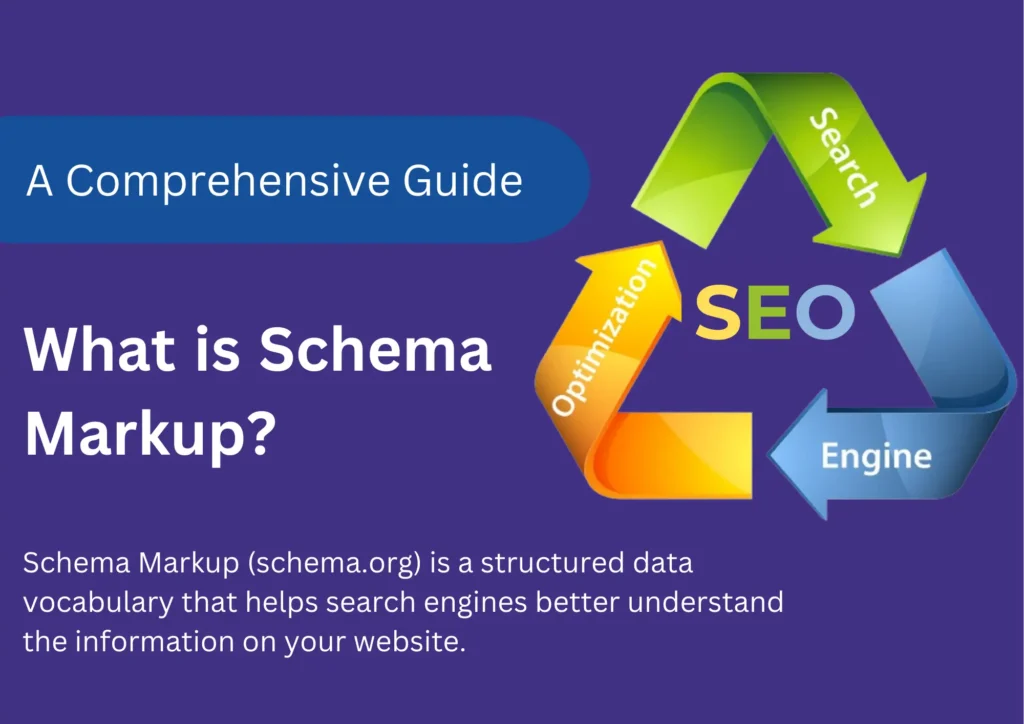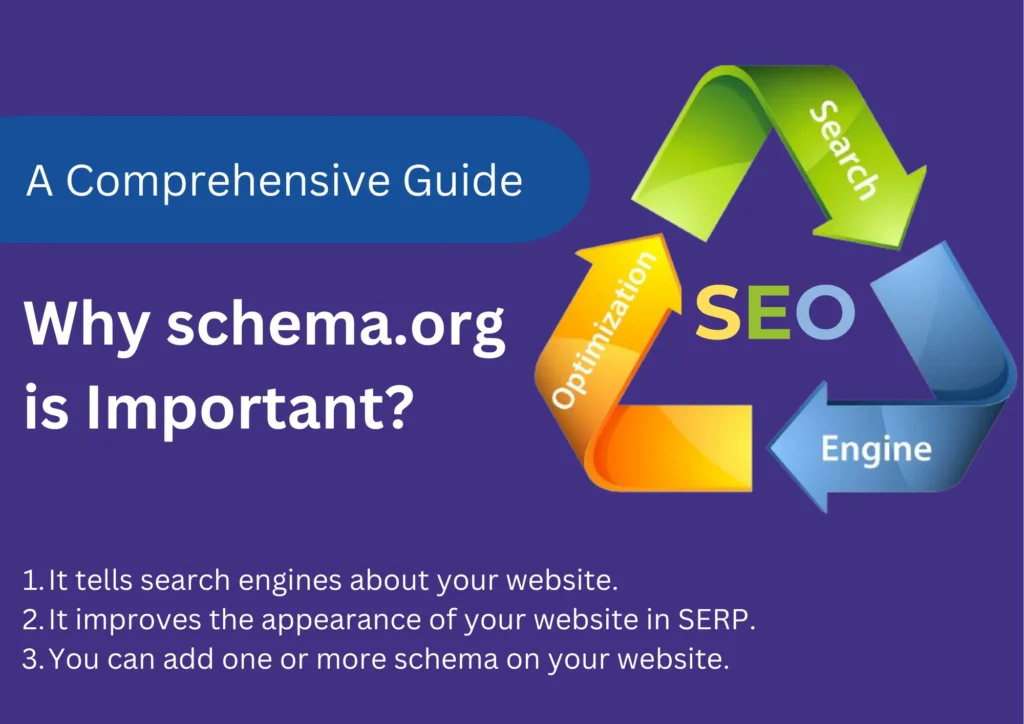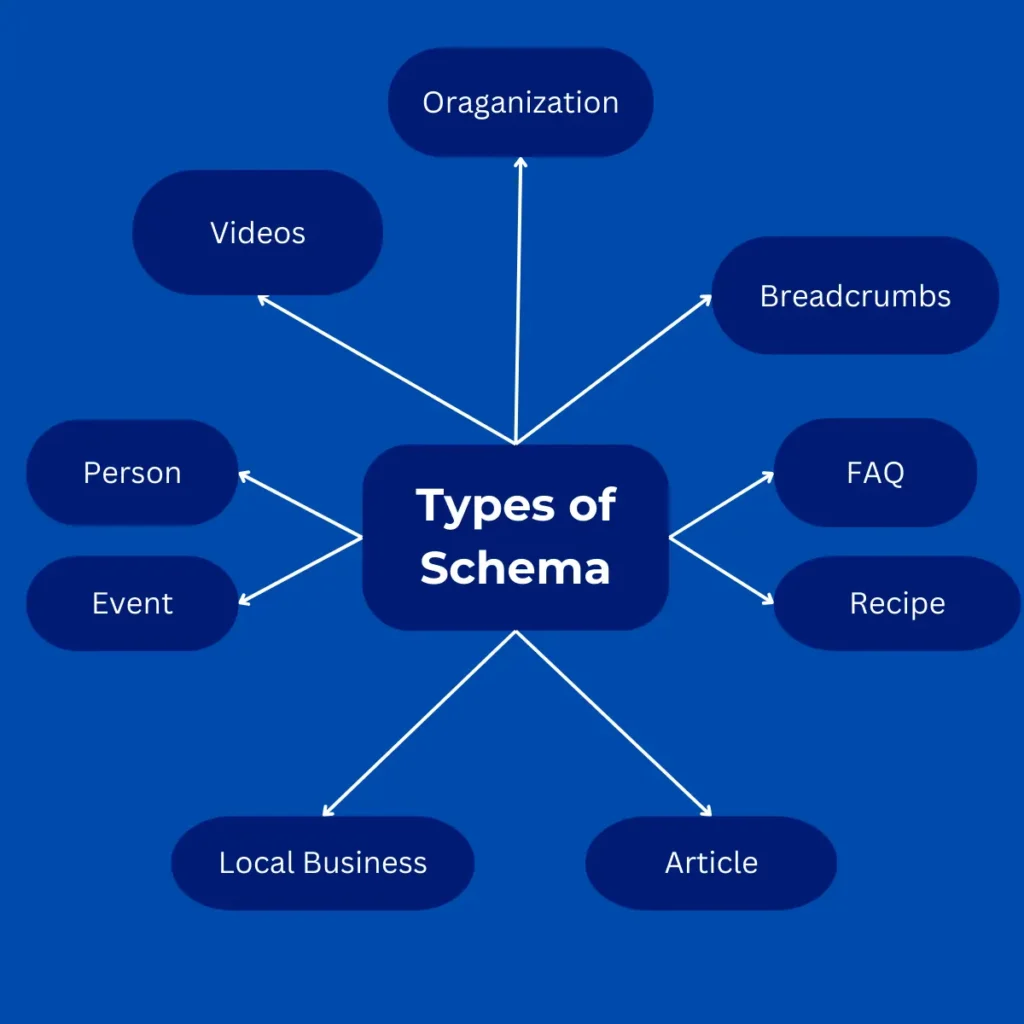Schema Markup (structured data)
If you have used it on your website and if not how to generate and add it on your website this article is going to answer all the questions for you.
What is Schema Markup, Why to Use It schema markup?
Schema Mark-up is also known as structured data. Schema markup is a type of microdata that provides important information to search engines. It is one type of HTML tag that helps search engines understand your business name type address and other contact details easily.
Now this might be surprising for you that google we think is so powerful. Who tracks every information analysis It has the answers to all your questions. So how it possible is that Google is not able to understand the information of a small website?
The answer is search engines do not see the websites as we do this is how we see any website online. But the search engines can only see the websites in this form all the colors and style design of a website can only be seen by you. But for the search engines, it is just a long text file with so many sentences and numbers and that is when it gets difficult for search engines to interpret. Which one is your address and which number is your phone number even though the technology has evolved so much still there is no solution to the problem faced by search engines. That is why to overcome this search engines like Google, Microsoft, Yahoo, and Yandex found a schema markup. This provides this information to the search engines in an understandable form.

Why schema.org is important?
Schema.org is a crucial element in the realm of online content and SEO for several reasons:
- Enhanced Search Engine Visibility: Schema.org provides a standardized way to structure data on web pages, enabling search engines to better understand the content. This improved comprehension leads to enhanced visibility on search engine results pages (SERPs).
- Structured Information: By using Schema.org markup, website owners can provide structured and detailed information about their content. This includes specifying the type of content, such as articles, events, products, and more, along with relevant details like dates, prices, and reviews.
- Rich Snippets: One of the standout benefits of Schema.org is the creation of rich snippets. These visually appealing and informative snippets can include star ratings, prices, and other details, providing users with a preview of the content directly on the SERP. Rich snippets often attract more attention and clicks.
- Improved Click-Through Rates (CTR): Pages with Schema.org markup tend to experience higher click-through rates. The additional information displayed through rich snippets encourages users to click on the link, as they get a clearer idea of what the page offers.
- Enhanced User Experience: Schema.org contributes to a better overall user experience by presenting information in a structured and easily digestible format. Users can quickly assess the relevance of a page without clicking through, leading to more satisfied and engaged visitors.
- Local Business Optimization: For local businesses, Schema.org offers specific markup like Local Business Schema and address markup. This helps search engines understand and display accurate information about business locations, opening hours, and contact details.
- Adaptability to Algorithm Changes: Search engines regularly update their algorithms to improve user experience and relevance. Schema.org markup evolves alongside these changes, ensuring that websites using it remain in sync with the latest search engine requirements.
- SEO Success Stories: Many successful SEO campaigns attribute their success to the effective implementation of Schema.org. Brands that leverage schema markup effectively often witness improvements in search engine rankings, visibility, and user engagement.
- Preparation for Future Trends: As technology evolves, so do search habits. Schema.org is poised to adapt to emerging trends, such as the increasing prevalence of voice search and the continued emphasis on mobile-first indexing, ensuring that websites remain optimized for evolving user behaviors.

How to Generate Schema Markup on Google
If you will type schema markup generator you will see a lot of tools so you can pick any one out of these. Now let’s go for the good one which is technical SEO .com. You can open this, here you need to choose from this drop-down menu right here you have to select which type of property you want to create all right so you can select any depending on the niche of your website.
How Many Different Kinds of Schemas Exist?
There are 1,453 schema properties and 797 types of schema as of right now.
These are all available on schema.org, an open, collaborative collection of several schemas in several encodings, including RDFa, Microdata, and JSON-LD.
There are many hundred different schema types, however, some are more often used than others.
Major Types of Schema:
- Organization
- FAQ
- Breadcrumbs
- Recipe
- Article
- Local Business
- Event
- Person
- Videos

FAQs
What is the purpose of Schema Markup?
Schema markup enhances the way search engines understand and display content, improving visibility and user experience.
How does Schema impact search engine rankings?
Schema can positively impact rankings by providing structured data that search engines use to deliver more relevant and visually appealing search results.
Can Schema be used for any type of website?
Yes, schema markup can be applied to various types of websites, including blogs, e-commerce sites, and local businesses.
Are there any downsides to using Schema Markup?
While the benefits are substantial, improper implementation or outdated markup can pose challenges. Regular maintenance is essential.
How often should Schema Markup be updated?
Stay informed about updates to schema markup and update your implementation whenever there are changes to ensure continued effectiveness.
